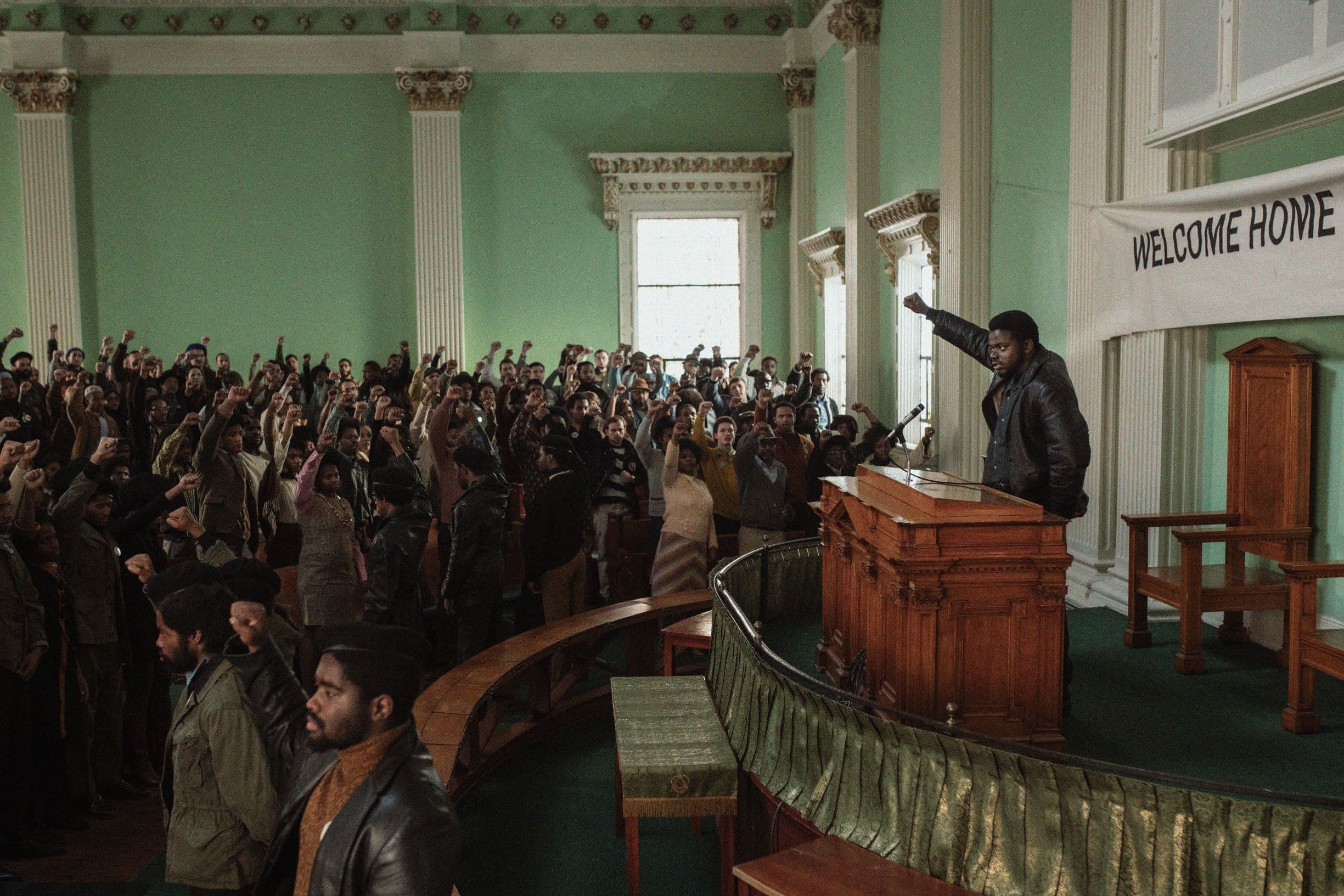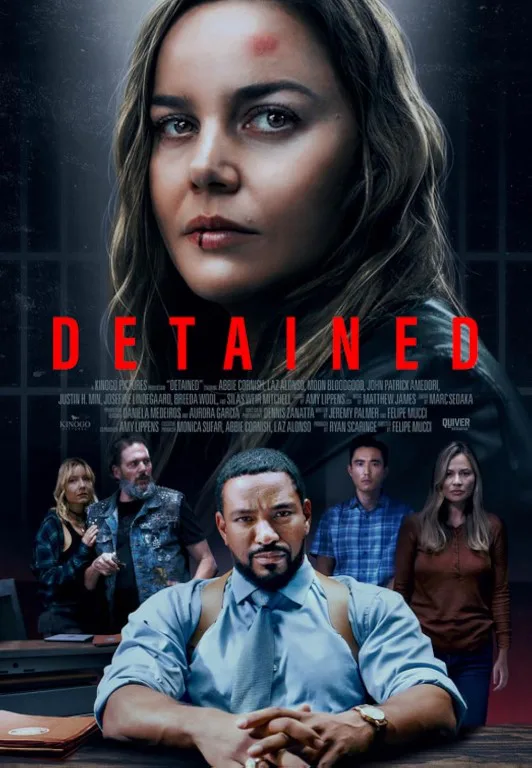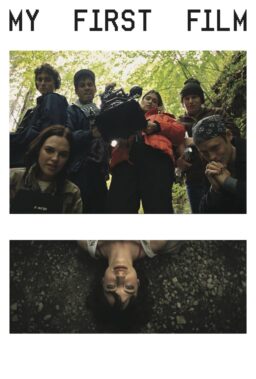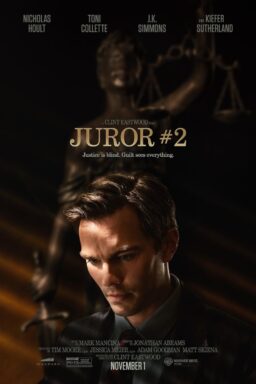As I type this essay, students across the country are encamped in university quads. Protesting American Imperialism, by way of protesting their universities' investments in war profiteers. They are most vocal about the final obliterations of Gaza. As a longtime educator and chaplain in Chicago, I have current students in those encampments, as well as past students among the police officers sent to remove them.
The university students are the same ages as the main characters of Shaka King's "Judas and the Black Messiah" (2021), which follows Bill O'Neal (LaKeith Stanfield) as he works as an FBI informant monitoring Fred Hampton (Daniel Kaluuya), a leader of the Black Panthers. The film ends with Hampton's assassination and mention of O'Neal's suicide. It captures a recent moment in our history, yet—despite an Academy Award—is now largely forgotten, even though it remains relevant.
Early on in the film, we meet J. Edgar Hoover (Martin Sheen) speaking to a dark auditorium full of Federal agents. As head of the FBI, he oversaw COINTELPRO, a "counter intelligence program," targeting a long list of individuals and groups as dissidents. Here, he calls the Panthers the greatest threat to our society. What was the Black Panthers' threat? Of course, it was the call for armed revolution, but in that they were one group among many. As a revolution by the people, it would only happen if the people supported it.
Critics see the current encamped students as spoiled brats, pawns of everything from George Soros to Iran and Russia. Critics see the universities and police officers as stooges of the government and see the U.S. President as a pawn of Israel. The Panthers faced similar criticisms, accused of being tools of communist China or the Soviet Union. As was the case with the Panthers, I do not know why the police get sent to destroy the camps. The excuses are obvious, but we understand Power. Power seeks villains as an excuse to sustain itself.
In the past month, I spent a lot of time in these various encampments across Chicago. There were no calls for revolutions; there were no calls for violence. Rather, the consistent sentiment was of love and solidarity of allies across different political movements, united against oppression. I suspect that someday, someone will make a film about these students, including the informants and outside agitators that disrupt their efforts.

Shaka King's movie can be a guidebook for them. The greater message of Hampton's character is that if you are not ready to die for the people, then you may not be ready to live for or love the people.
What was the Black Panthers' crime that they were targeted for? Was it their anti-capitalist propaganda? Was it their self-imposed mandate to provide meals, healthcare, and education? In the same way that some in today's world have arbitrarily chosen the migrants, Muslims, Jews, or the LGBT community as the greatest of all threats—as opposed to, say, high-interest lenders, the liquor industry, or casino operators—such seems to be the same with the targeting of the Panthers. I suspect their crime was that they were intelligent, armed, disciplined, organized, confident, and Black.
The FBI monitored and fomented conflict across the activist communities. After the assassinations of Lumumba overseas, as well as Evers, Malcolm, and King, the 73-year-old Hoover searched for a new Black Messiah to crucify. They targeted the fast-talking, razor-sharp Fred Hampton.
Kaluuya captures Hampton's oratory. His voice frightens many who cannot hear his very rational rhetoric: fight fire with water not fire; fight racism with solidarity across the races not reverse racism; fight capitalism with socialism not alternate capitalism.
Of course, the FBI's vision becomes a self-fulfilling prophecy. First, by targeting an individual, we interpret all his moves with the worst possible skepticism, almost always wrong about him. Second, by targeting African-American communities focused on social development, we are recognizing legitimate discontent: rather than invest in healing and rebuilding, the approach is to dismantle and destroy.
What was his crime? That is the question Bill O'Neal struggles with. He's a clever small-time con artist, pulled into the FBI's web, assigned by the Romans as Judas. Lakeith Stanfield's large sad eyes betray his frank observations as he speaks. Plemons often has the friendly tone of a 1950s sitcom neighbor. Here, as Agent Mitchell, his comments mask the shrewdness of a laser-focused nationalist possessing the authority of a badge.

The film follows the formulas of informant stories like "Donnie Brasco" (1997), "The Departed" (2006), "Traitor" (2008), "BlacKKKlansman" (2018). As our star feels he has gone too deep, he wants to get out, but he cannot. Or he will not.
At the same time, this film is a biopic about activists. Where it differs from those classics is in the pairing of its main characters. Fred Hampton astonishes because he is so young, like a prodigy or a political virtuoso. In as much as we might think of the depictions of Che Guevara, Gandhi, Dr. King, Lumumba, Malcolm X, or Omar Mukhtar, this story recalls the balance of Milos Forman's "Amadeus" (1984) that Salieri was against the young brilliant Mozart.
Likewise, its most beautiful moments are of humanity, in long close-ups. In one moment, Mrs. Winter (Alysia Joy Powell) remembers her slain son as a constant seven-year-old, not as a cop killer. Near the film's end, Deborah Johnson (Dominique Fishback) stares into emptiness as officers fire away on the body of young Hampton. Throughout the film, as his eventual partner, she molds him. Her soft edges and smile are as firm as his sharp-tongued glare.
As a manual for the modern revolutionary, as a "rules for radicals," this film marks four key stages in the growth and crushing of a revolution that echo today.
First are the foundational lessons. Your primary strength is not the weapons and not even the Marxist/Maoist dialectics, but the loving, living breathing people. You benefit not from tearing your peers down, but from uplifting and inspiring them. Your words—poetic and forceful—are actions. But, in building its case toward your destruction, Power will sift through your metaphors as though they are the direct chatter of a violent, enchanting demagogue.
Second, build coalitions. Fred Hampton enters into every terrain, every stronghold of every group, be it local gangs or other cadres with common discontent against the system. This unity is not merely a merger of populations or an alliance of allies, but a strategy to set everyone together in a larger movement: often the Panthers with their national reach and political platform merge with local on-the-ground forces. In the meantime, however, as Power watches you grow, they sow division among and within all groups, to get everyone to turn against you.

Third, as you further grow, Power escalates its tactics. The only way to stop Fred Hampton was to accuse and convict him of a petty crime. In person, he was the unifying force, the best voice, the best peacemaker, the best recruiter. With him out of the picture, however, the comrades lose their discipline, and get consumed in self-destructive paranoia about informants. Once they break down enough—first fighting their own, then killing a police officer—they give license to law enforcement to enter with guns blazing.
Fourth, requiem. The movement begins to split between those driven by anger and those by love. The angry comrades want to progress toward violent confrontations with Power. The people of love want to continue to build. The leader and the movement have so grown that Power strikes its final blow. Adjudication and incarceration were not enough: assassination is the final option.
The officers break into his home, firing 99 shots, killing Hampton and another Panther leader, while the Panthers fire one. Decades later, Johnson wins a civil trial against them. Now, we remember Hampton through his survivors, through clips of speeches, through other memorials.
In the end, we remember this story as a tragedy of Fred Hampton. But it is equally the tragedy of Bill O'Neal. With both men I wonder what could have been. In life and death, Hampton's efforts could inspire thousands. If the student encampments are any indication, it is clear that they still do.
Despite forced removals, today's student protesters accomplish significant victories in their negotiations with their universities. We elders often criticize the young as naive idealists by focusing on the students' missteps, but the young people are so often on the right side of history. Such was Fred Hampton.
Omer Mozaffar has been teaching at the University level in Chicago for twenty years and chaplaining for a decade. He's been a teacher in the Chicago Muslim community for over thirty years.












